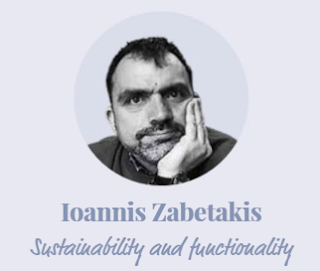by Ioannis Zabetakis
The news: “Retailer Holland and Barrett have bowed to Greenpeace pressure and removed krill products from its shelves after being warned they were stealing food from penguins” (Telegraph, March 23, 2018).
According to NGO Greenpeace, the krill-fishing industry, which involves catching the tiny shrimp-like creatures for products such as Omega-3 tablets, has threatened wildlife in Antarctica. For the environmental group, this activity depletes food from penguins, seals and whales in the fragile region.
The environmental campaign group accused Holland & Barrett of stocking products which put species that depend on the krill for food at risk. Supporters have sent 40,000 emails to the company's chief executive on the issue in 24 hours and stores across the UK have seen krill products labelled with stickers about their impact on the environment.
Separately, a polling of 2,024 adults by YouGov for Greenpeace has revealed almost two-thirds of people (65 percent) think retailers should not be stocking krill products fished in areas being considered for protection in the Antarctic Ocean.
A recent report from Greenpeace warned that tracking of ships targeting krill in Antarctica has revealed vessels close to wildlife feeding grounds and suggests some are anchoring near existing protected areas.
Greenpeace is calling for all vessels krill fishing in the region to stay out of all Antarctic areas which are being proposed as marine sanctuaries and for businesses which buy krill to avoid those that continue to fish in those places.
Holland & Barrett's chief executive Peter Aldis said all the krill-based supplements it sold were certified as sustainable by the Marine Stewardship Council, but the company shared the concerns raised in the Greenpeace report.
Read the full article, HERE.
The news: “Retailer Holland and Barrett have bowed to Greenpeace pressure and removed krill products from its shelves after being warned they were stealing food from penguins” (Telegraph, March 23, 2018).
According to NGO Greenpeace, the krill-fishing industry, which involves catching the tiny shrimp-like creatures for products such as Omega-3 tablets, has threatened wildlife in Antarctica. For the environmental group, this activity depletes food from penguins, seals and whales in the fragile region.
The environmental campaign group accused Holland & Barrett of stocking products which put species that depend on the krill for food at risk. Supporters have sent 40,000 emails to the company's chief executive on the issue in 24 hours and stores across the UK have seen krill products labelled with stickers about their impact on the environment.
Separately, a polling of 2,024 adults by YouGov for Greenpeace has revealed almost two-thirds of people (65 percent) think retailers should not be stocking krill products fished in areas being considered for protection in the Antarctic Ocean.
A recent report from Greenpeace warned that tracking of ships targeting krill in Antarctica has revealed vessels close to wildlife feeding grounds and suggests some are anchoring near existing protected areas.
Greenpeace is calling for all vessels krill fishing in the region to stay out of all Antarctic areas which are being proposed as marine sanctuaries and for businesses which buy krill to avoid those that continue to fish in those places.
Holland & Barrett's chief executive Peter Aldis said all the krill-based supplements it sold were certified as sustainable by the Marine Stewardship Council, but the company shared the concerns raised in the Greenpeace report.
Read the full article, HERE.
The Aquaculturists
This blog is maintained by The Aquaculturists staff and is supported by the
magazine International Aquafeed which is published by Perendale Publishers Ltd
For additional daily news from aquaculture around the world: aquaculture-news


No comments:
Post a Comment